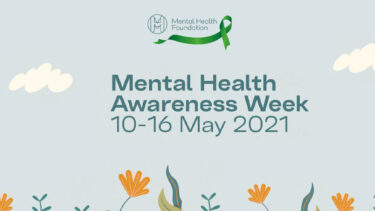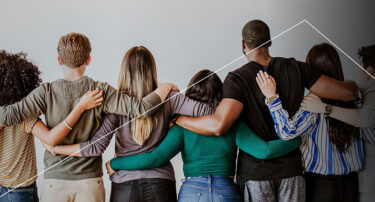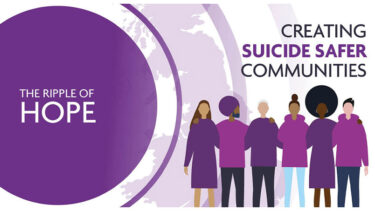It is not the strongest of the species that survives, nor the most intelligent that survives. It is the one that is the most adaptable to change.
Recognising the importance of mental health
Mental health is one thing that unites us; it affects us no matter who we are or what we do in life. Sometimes it can be good, other times it can be poor, but we all have it and it has no boundaries. It’s simply part of who we are, and it can change at any given time depending on what life throws at us.
At Wates we recognise Mental Health Awareness Week because it’s our opportunity to really shine the light on mental health, get people talking about it, and give them the space to have some open and honest conversations. This year we’ve chosen to focus the week on resilience, and how essential it is to better mental health. After what has been an incredibly tough year for many, we want to support everyone to feel better equipped in being able to deal with setbacks confidently and effectively in order to protect their mental health.
A long journey ahead of us
Mental health is no longer the taboo subject it once was, but in construction particularly we know we still have a long way to go. Ours is an industry with a lifestyle that can be challenging and stressful, with long and demanding hours, with many often working away from home on site for weeks. The additional pressures of managing COVID-19 and the resulting economic uncertainty in our industry, have increased the stress levels and the pressure on our mental health is immense. Even before COVID-19 struck, mental health in our industry was a major concern. A recent survey from the Chartered Institute of Building (2020) found:
- 26% of construction industry professionals had thought about taking their own lives in 2019
- 97% recorded being stressed at least once in the last year. Job insecurity, long hours, time away from families, lack of support from HR and late payments were all contributory factors
- 70% had experienced depression and 87% had experienced anxiety over the past year.
Anxiety, stress and depression in the industry have been on the increase for several years. We know from government figures that male construction workers are 2.7 times more likely to take their own life than the average person, with one suicide every day in our industry, and in 2017/18 over 400,000 days of work were lost because of poor mental health in construction.
COVID-19’s impact on mental health
The prolonged lockdowns of the pandemic have forced so many of us to work from home. We’re working longer hours, often finding it difficult to separate our home life from our working life; we’re spending our days on interminable Teams or Zoom meetings, often barely leaving our desks. It’s making us unfit and unhealthy, and many of us are approaching burnout. Even as we can begin to see a return to some semblance of normality, there are concerns about what returning to work will be like, with people’s excitement mixed with real fear.
How we’re responding building personal resilience
The health and wellbeing of our people has always been our top priority as a company, and by 2025, we aim to have zero cases of work-related stress absence. This year we’ve formed a unique partnership with EveryMind at Work to develop training on building personal resilience. This will be a company-wide programme spanning three years.
During Mental Health Week itself, we’re supporting colleagues with a range of resources, information and webinars where they’ll have the opportunity to learn more about coping with stress and building resilience.
Mental health first aid
We’re proud to have a Mental Health First Aider network within the company of more than 260 trained colleagues, as well as 10 colleagues trained in ASIST (Applied Suicide Intervention Skills Training). In 2020, they supported over 1,600 people and gave advice to people who were concerned about a colleague’s mental wellbeing. Their skills have been used to support not only our own people but also our supply chain and customers as well as residents and other members of the communities where we work.
A resilient mindset
When I think of resilient people in my life, I see qualities such as calmness, positivity, seeing the perspective in situations and pragmatic thinking. They show their real selves and with that brings a great level of self-confidence and authenticity. I’m not saying they brush problems aside or do not experience stress or hardship, but they don’t allow themselves to be consumed by them which in turn allows them deal with problems constructively whilst still finding joy in day to day life.
Being able to tap into these qualities, would allow more of us to bounce back stronger and move forward in a positive way.





